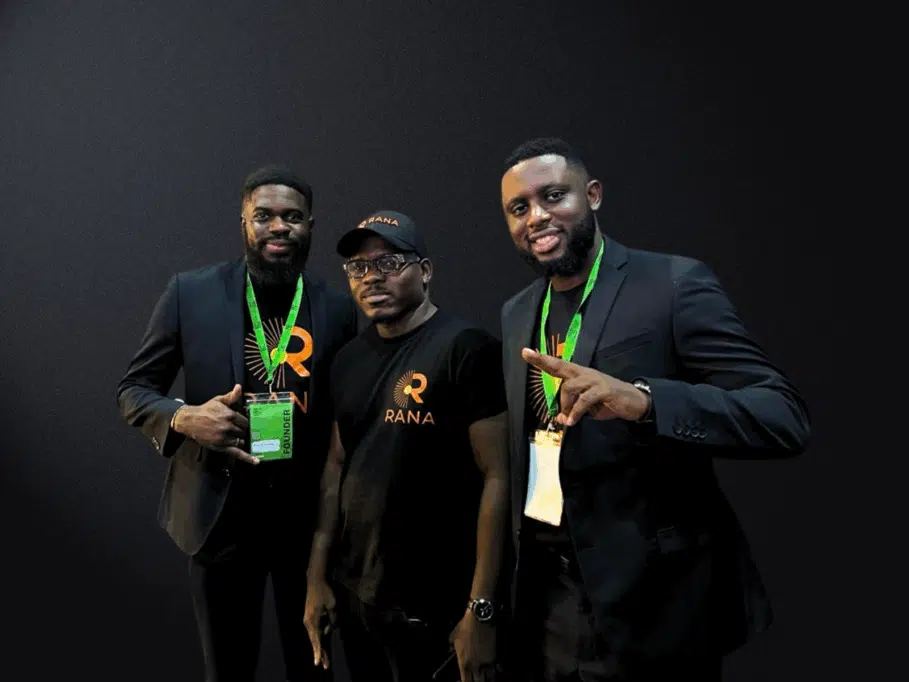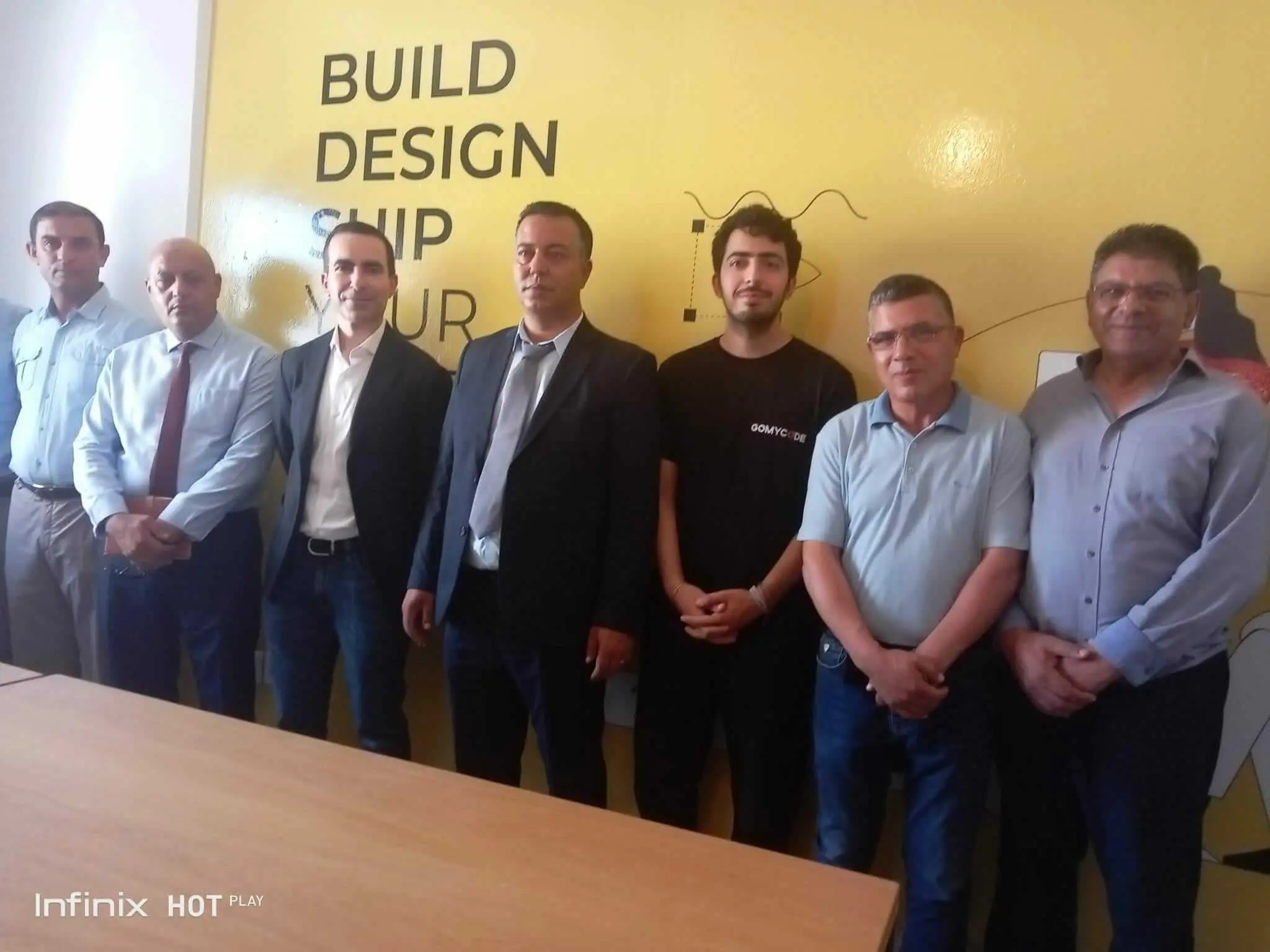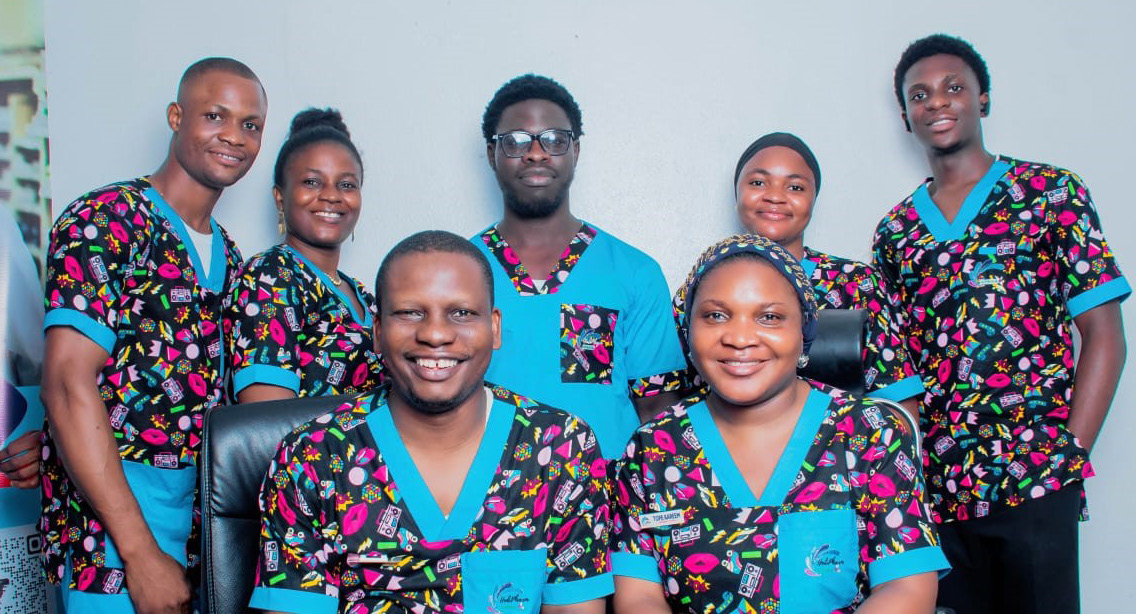Nigerian startup’s AI-driven platform aims to displace diesel generators with subscription-based solar solutions
LAGOS, Nigeria — Nigerian clean energy startup Rana Energy has closed a $3 million pre-seed funding round, marking a significant milestone in its mission to transform Africa’s energy landscape through artificial intelligence and renewable power.
The funding, announced this week, comprises $500,000 in equity from Techstars, EchoVC Eco, and prominent angel investors including Chinedu Azodoh and Tayo Bamiduro, co-founders of mobility unicorn MAX. The larger portion, a $2.5 million local currency green debt facility, was arranged by Optimum Global and backed by FSDH Asset Management, showcasing an innovative hybrid financing model that could prove replicable across the continent.
Tackling Africa’s $35 Billion Energy Crisis
Founded in 2023 by engineers Abraham Mohammed and Mubarak Popoola, Rana Energy addresses a critical gap in Africa’s infrastructure. With approximately 600 million Africans still lacking reliable electricity access and businesses spending over $35 billion annually on backup diesel generators, the startup is pioneering what it calls a “Clean Energy-as-a-Service” model.
At the heart of Rana’s offering is the Virtual Solar Network (VSN), an AI-powered digital utility that forecasts energy demand, aggregates solar and storage projects into investable portfolios, and remotely manages distributed clean energy assets. The platform enables businesses and institutions to subscribe to clean energy without prohibitive upfront installation costs.
“Before Rana, we were spending over ₦2.5 million monthly on diesel at our Physiotherapy clinic,” said Dr. Boroji Osindero, Medical Director at Wellness Centre in Lagos. “Now, we have 24/7 clean power at 25% less cost, and our patients know they can count on us during emergencies.”
Rapid Execution in a Challenging Market
In just 18 months since its founding, Rana has deployed 1.3 MW of solar and battery storage systems across Nigeria, achieving an impressive 99.9% uptime while reducing diesel dependence by over 80% for its clients. Energy costs have been slashed by up to 30%, demonstrating both the economic and environmental viability of the model.
“Execution is everything in this market, and Rana delivers at lightning pace,” said Mubarak Popoola, co-founder and CTO. “From federal institutions to frontline businesses, we are proving that reliable clean energy is not just possible, it is inevitable.”
Among Rana’s flagship installations is a solar carpark project at the National Defence College in Abuja, part of a larger 5 MW Energy Security and Sustainability Program that represents Nigeria’s largest solar carport installation to date.
Technology Meets Finance
Rana’s competitive advantage lies in its integration of several cutting-edge technologies within the VSN platform. AI-driven forecasting optimizes the sizing and performance of solar-plus-storage systems, while GIS and drone mapping identify rooftop and land-based solar potential in urban areas to accelerate project development. The platform also provides digital tools for investors to finance and monitor individual projects or entire portfolios.
The startup’s hybrid financing structure is particularly noteworthy. Equity funding supports technology development and team expansion, while the larger debt facility finances the physical solar and battery assets deployed for customers. This approach allows Rana to scale rapidly while maintaining capital efficiency.
“We have shown that sub-1 MW clean energy systems, when aggregated, can attract institutional capital, deliver strong returns, and drive measurable impact,” said Abraham Mohammed, co-founder and CEO. “By blending venture equity with structured green debt financing, we have built a replicable model for Africa’s energy transition.”
Ambitious Expansion Plans
With the fresh capital injection, Rana plans to expand its VSN capacity to 10 MW over the next 12 months, powering battery swap stations, hospitals, supermarkets, and industrial facilities across Nigeria, Ghana, and Zambia. These assets are projected to avoid over 450,000 kg of CO₂ emissions annually.
Looking further ahead, the company has set a target of deploying 100 MW of solar infrastructure across Africa by 2028, positioning itself as a key player in displacing the continent’s reliance on diesel generators.
The startup’s potential has not gone unnoticed by major ecosystem players. Rana was recently selected for the Google for Startups Accelerator Africa Class 8, highlighting its growing influence in the region’s climate-tech scene.
Investor Confidence in Climate Infrastructure
“Rana represents everything we look for in climate infrastructure: exceptional founders solving a massive problem with breakthrough technology and innovative financing,” said Eghosa Omoigui, Managing Partner at EchoVC Eco. “Abraham and Mubarak have built the first truly scalable solution to Africa’s $20 billion energy access gap.”
However, challenges remain. Currency volatility, high import tariffs on solar components, and battery supply constraints could test Rana’s execution capabilities as it scales across multiple markets. Nevertheless, the company’s track record of rapid deployment and customer satisfaction positions it well to navigate these obstacles.
As Africa grapples with energy poverty and climate change simultaneously, Rana Energy’s model offers a compelling blueprint for how technology, innovative financing, and distributed infrastructure can work together to power the continent’s future—one subscription at a time.
Rana Energy is registered in Delaware and headquartered in Lagos, Nigeria. For more information, visit ranaenergy.io.




